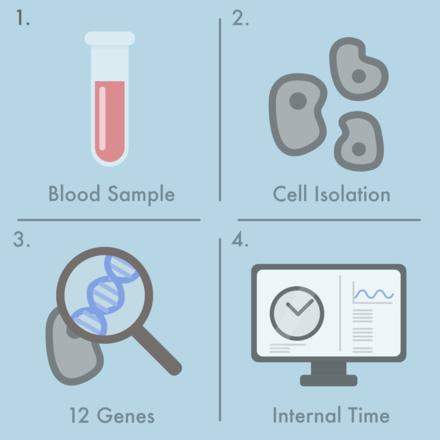Researchers from the Charité – Universitätsmedizin Berlin have developed a new blood test to determine the state of the internal clock of a person.

Image: The cells are isolated from a single blood sample to determine the activity of twelve time-telling genes and the computer algorithm is used to calculate the state of the internal clock. Photo: courtesy of Kramer/Charité
The drugs can be administered at specific times of day, if the internal rhythm of patient is recognized.
The international team headed by Professor Dr Achim Kramer carried out research to identify of biomarkers in blood, which characterize the internal time of an individual.
Initially, the activity of all 20.000 genes in a specific blood cell-type over the course of a day was assessed from multiple subjects.
Through using specialized computer algorithms, the researchers have identified 12 genes that reliably report internal time.
The biomarkers in a single blood sample holds capacity to differentiate early from late types, even if the person wake up in the morning using an alarm clock, against the biological clock.
Dr Kramer said: “Such a therapy taking time of day into consideration has been rarely applied until now, since a simple diagnostic was unavailable. We think this novel objective test of internal time can contribute to time of day gaining more meaning in diagnosis and therapy.”
The researchers intend to show effectiveness of personalized chronotherapy in future clinical studies. They are planning to adjust the therapy as per the patient’s internal time.
The effect of the treatment can be optimized and simultaneously the risk of side effects can be minimized, when the time window with maximum drug effectiveness is known.
Charité – Universitätsmedizin Berlin, which is wholly-owned by the Federal State of Berlin, records a turnover of €1.6bn per annum.
At Charité, around 3,700 researchers are involved in the development of pioneering innovations in the field of medicine. They work across 1,000 projects, working groups and collaborative projects.
Charité provides various services for researchers ranging from research funding and technology platforms to centralized service facilities and project management.
Charité is involved in a range of cooperative projects, specifically promoting the mutual exchange of findings from basic biomedical research, clinical research and clinical application.
